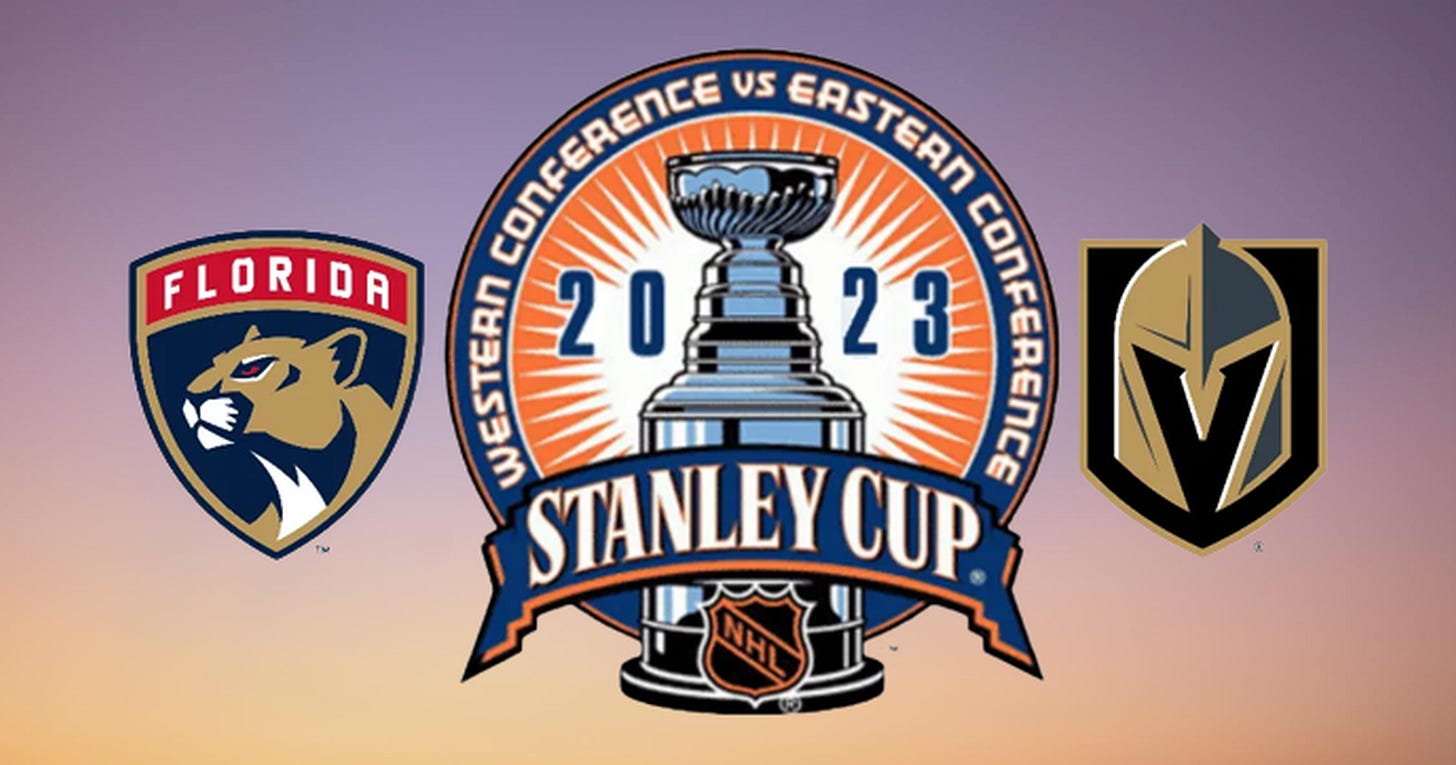Where Florida vs. Vegas Ranks Among Unexpected Stanley Cup Pairings
It's up there. But have we seen weirder Finals matchups?
Well, so much for the Dallas Stars’ efforts to extend the Western Conference Final to 7 games. Instead, the Vegas Golden Knights closed out the series Monday night in extremely convincing fashion and advanced to the Stanley Cup Final, where they’ll find the upstart Florida Panthers waiting for them. And with that, not only will we get one of the warmest-weather title matchups in NHL history, but also a battle of teams that looked far from destined to meet when the playoffs started six weeks ago.
The Panthers were obviously a longshot pick to play for Lord Stanley’s Cup. In terms of history, this franchise hadn’t even made it past the second round in 27 years. And in 2022-23 specifically, Florida had the worst regular-season record of any playoff team, earning them a first-round date with the dominating Boston Bruins for their trouble. According to the Vegas books, the Panthers had an implied probability of just 23% to even escape that matchup, much less win two additional series as an underdog along the path to the Final.
The Golden Knights might sound less like a true dark-horse Cup Final pick. In fact, Vegas actually had the best record in the West during the regular season. But they looked less like a potential champion when we considered their goal differential (ninth-best in hockey) or schedule-adjusted metrics like Hockey-Reference’s Simple Rating System, or SRS (also ninth-best). They were betting favorites in Round 1 against the overmatched Winnipeg Jets, sure. But the Knights seemed like they would have trouble deeper in the Western Conference’s postseason bracket, when they hit teams that appeared better on paper.
Let’s put some numbers on how unlikely both teams were to make the championship round. If we use SRS data from 1982 (the earliest season of the 16-team, conference-on-conference bracket format) through 2022, we can create a logistic regression model for NHL teams’ pre-playoff chances of making the Stanley Cup Final — including adjustments to ensure that each conference-season adds up to exactly 100% in total probability across all of its playoff teams.
According to this method, we would estimate that Vegas’ +0.49 rating (No. 4 in the West) gave them a 12.6% chance to win the conference title on the eve of the postseason. Meanwhile, Florida’s +0.24 SRS (No. 8 in the East) was worth a Finals probability of just 5.3%. Jointly, that means the odds that both the Panthers and Golden Knights would march to the Final were just 0.7%, or 1-in-151.
Of course, any particular Cup matchup combination is unlikely before the playoffs begin. (Back when I was with FiveThirtyEight, we gave last year’s historically impressive Avalanche-Lightning series only a 4.4% chance of happening.) But few have been quite this unlikely. Compared with each Finals combo since 1982, only two others — the 1993 Final between the Montreal Canadiens and L.A. Kings (0.5%), and the 2021 Final between the Lightning and Canadiens (also 0.5%) — would have looked less probable before the playoffs began.
The Panthers do a lot of the heavy lifting here by themselves, ranking as the fourth-most unlikely Finalist since 1982 (trailing only the 2021 Canadiens, 1991 Minnesota North Stars and 1993 Kings). Any Western Conference team they faced would have automatically participated in one of the most unforeseen Cup combos in modern history. But the Golden Knights’ own odds rank 30th-lowest among the 82 Cup Final teams since 1982. They carry a lower probability (12.6% versus 13.7%) than the 2018 version of the franchise that made its run as an expansion team. (Remember, these are all pre-playoff odds; pre-season would be another story for Vegas in 2018!)
In other words, there wasn’t a whole lot in the stats to suggest we’d be breaking down a Florida-Vegas matchup to decide who hoists the greatest trophy in sports. But to both teams’ credit, the Panthers and Golden Knights took their regular-season weak points and made them playoff strengths, while maintaining the core identities that got them to the postseason in the first place. That’s a great combination for success when the games matter most, even if it also means your collision course was tough to see coming back before the tournament started.
Filed under: NHL






